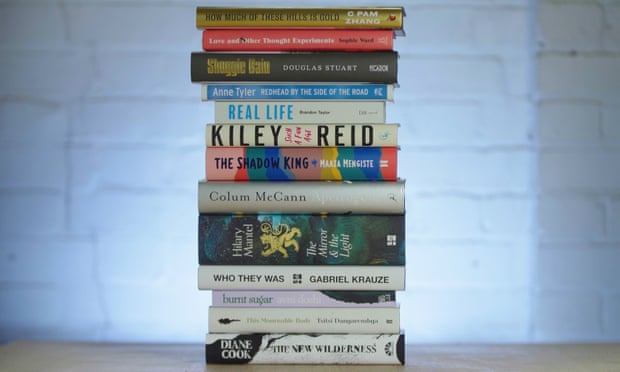The debate over acceptance into the English literary canon grows livelier with each new publication. For some, the canon is a tradition—a members-only club seeking to promote the same trite stories over those centring women, people of colour, and 2SLGBTQIA+ communities, among other marginalized groups. But the increasing prominence of “outsider” writers on the literary stage throws the dominance of tradition into tension. After a three-month process of longlisting, shortlisting, and finalizing a winner, on Nov. 19, the Booker Prize announced its winner, Shuggie Bain, a debut novel by Scottish writer, Douglas Stuart. Shuggie Bain’s win in a group of striking nominees for one of the literary world’s most acclaimed prizes is part of the new beginnings of representation and recognition by literary establishments.
Shuggie Bain is about family, violence, and sexuality in Thatcher-era Glasgow. Stuart is the first Scot in 26 years and the first gay man since Marlon James’ A Brief History of Seven Killings in 2015 to win the prestigious £50,000 prize. Likewise, the other five shortlisted authors were of diverse backgrounds. For the second consecutive year, no white, cisgendered, heterosexual men were on the Booker shortlist. Three authors, Tsitsi Dangarembga, Maaza Mengiste, and Brandon Taylor, are Black. One author, Avni Doshi, is of Indian descent. Both Taylor and Stuart are gay, and Dangarembga, Mengiste, Doshi, and Diane Cook identify as women. To see traditionally marginalized individuals recognized at an international scale shows a shifting approach in highlighting stories—the “modern classic” is growing toward a more inclusive mainstream definition. After years of grassroots work by smaller independent publishers like Canongate Books and Oneworld Publications and other organizations’ awards like the NAACP and the Lamda Literary Foundation, these two years of diverse nominees are a triumphant result of the fight to prove the worth of “outsider” authors in an often unwelcoming, exclusionary environment.
In an industry whose conventional wisdom for female writers, writers of colour, and queer writers is to toe the line, not go too far, and keep expectations low, these authors have written spectacular, innovative novels. Their inclusion demonstrates that the limits and definitions of literary merit are malleable. Literary award nominees were and still are largely straight, white authors. As authors like Toni Morrison, Salman Rushdie, and Alice Walker blazed trails for people of colour in publishing, prizes across the board are taking authors historically excluded from the Western canon more seriously. Colson Whitehead winning the Pulitzer Prize twice for consecutive novels, the last five winners of America’s National Book Award being people of colour, and 2SLGBTQIA+ writers like Stuart, James, and Taylor flourishing are all testaments to the efforts of past individuals, both authors and publishers, who were ahead of their times.
The question of whether representation by committee matters is a valid one, as the Booker Prize may well shortlist six white, male authors next year. In fact, it seems like only yesterday when the Booker Prize’s inexplicable choice to break their own rules in their judging process led to a controversial tie between the first Black female winner, Bernardine Evaristo’s brilliant, experimental novel Girl, Woman, Other and Margaret Atwood’s The Testaments. Further, prizes can act as an elite process of virtue signalling that do not address systemic barriers in the field. Representation in higher arenas of literature can shatter the presumed exclusivity of literary canons and give platforms to shortlisted authors. Bringing these stories to the forefront of today’s literary scene must, however, lead to action. The blindly held argument that 2SLGBTQIA+ or Black narratives are not palatable to mainstream audiences does not follow. The Booker’s shortlist sends a message to academic institutions, to publishing houses, to magazines, and to production companies that upholding decorum and singularity is a thing of the past.








